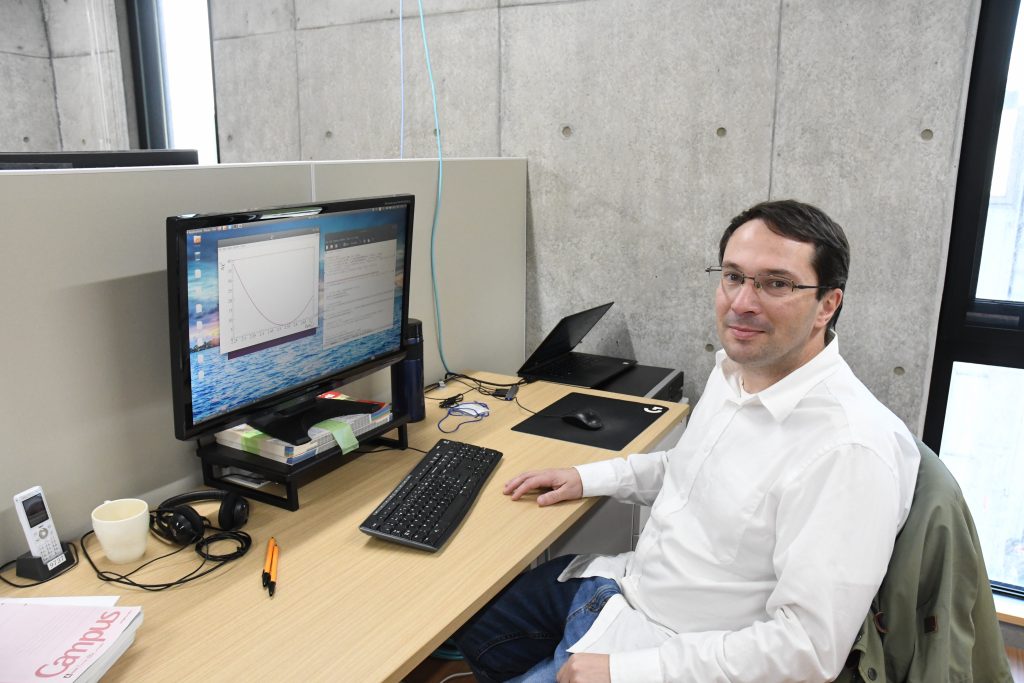Project Assistant Professor Christophe Bronner, a member of the Cosmic Ray Research Institute’s Super-Kamiokande Experiment Group, has recently been awarded the 18th (2024) Young Scientist Award of the Physical Society of Japan. This award is presented to young researchers who have written excellent academic papers in various fields of the Japan Physical Society.

Project Assistant Professor Christophe Bronner was selected from the field of elementary particle experiments, and the awarded relevant paper is “Improved constraints on neutrino mixing from the T2K experiment with 3.13×1021 protons on target, Phys. Rev. D 103, 112008(2021).
The T2K experiment is a ‘long baseline neutrino oscillation experiment’, in which a neutrino beam is generated using the high-intensity proton accelerator in J-PARC (Tokai Village, Ibaraki Prefecture) and then detected 295 kilometers away using the Super-Kamiokande detector in Hida City, Gifu Prefecture. The differences between the types of neutrinos detected at Super-Kamiokande and produced at J-PARC allows us to measure how they oscillated during the travel between the two places. The selected paper analyzes the data from the T2K experiment up to May 2018, reporting the latest values of various parameters in neutrino oscillations. The selection committee of the Japan Physical Society highly praised it, noting, ‘In particular, the high precision determination of the mixing angle and absolute value of the squared mass difference, and the significant confirmation of CP symmetry breaking and mass order are valuable and noteworthy. The paper describes a meticulous and comprehensive analysis in an easy-to-understand manner.’ The analysis led by Project Assistant Professor Bronner, a central figure in the Japanese group, is deemed fitting for the Young Researchers Encouragement Award of the Japan Physical Society.”
Project Assistant Professor Christophe Bronner commented; “I am very honored to receive this prize from the Physical Society of Japan. I think this award is a recognition of all the work done by the T2K collaboration, which led to this first significant result on the difference between the behavior of neutrinos and their anti-particles. We are now at an exciting time for the experiments studying neutrinos in Japan, with T2K starting soon a new phase following significant upgrades, and the on-going construction of the next generation experiment Hyper-Kamiokande, which will allow us to understand more precisely the behavior of neutrinos and study a number of fundamental questions in physics such as the stability of the proton. I am looking forward to this new phase and the exciting results to come.”





